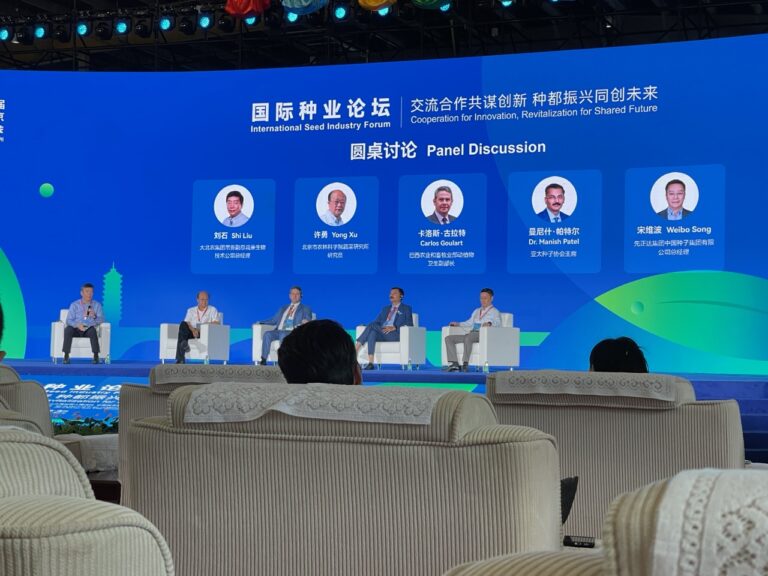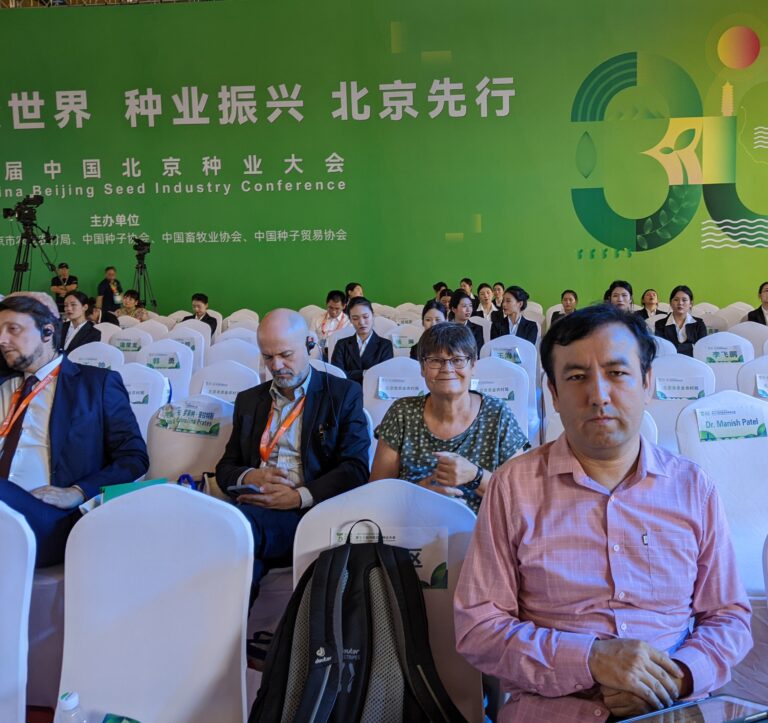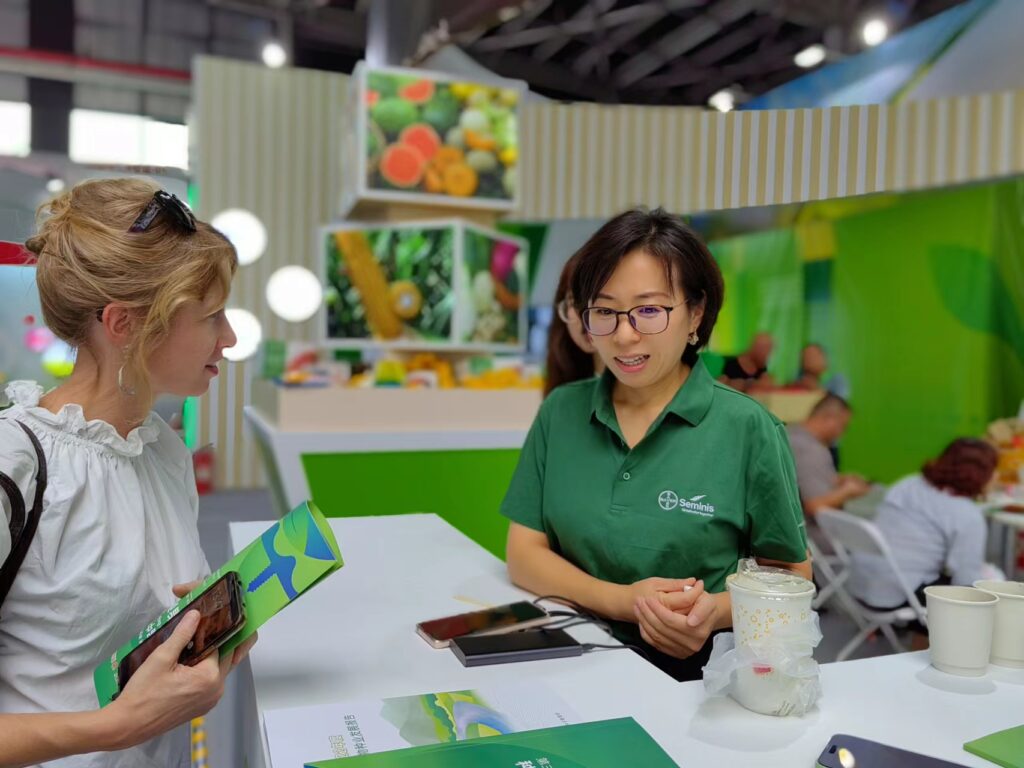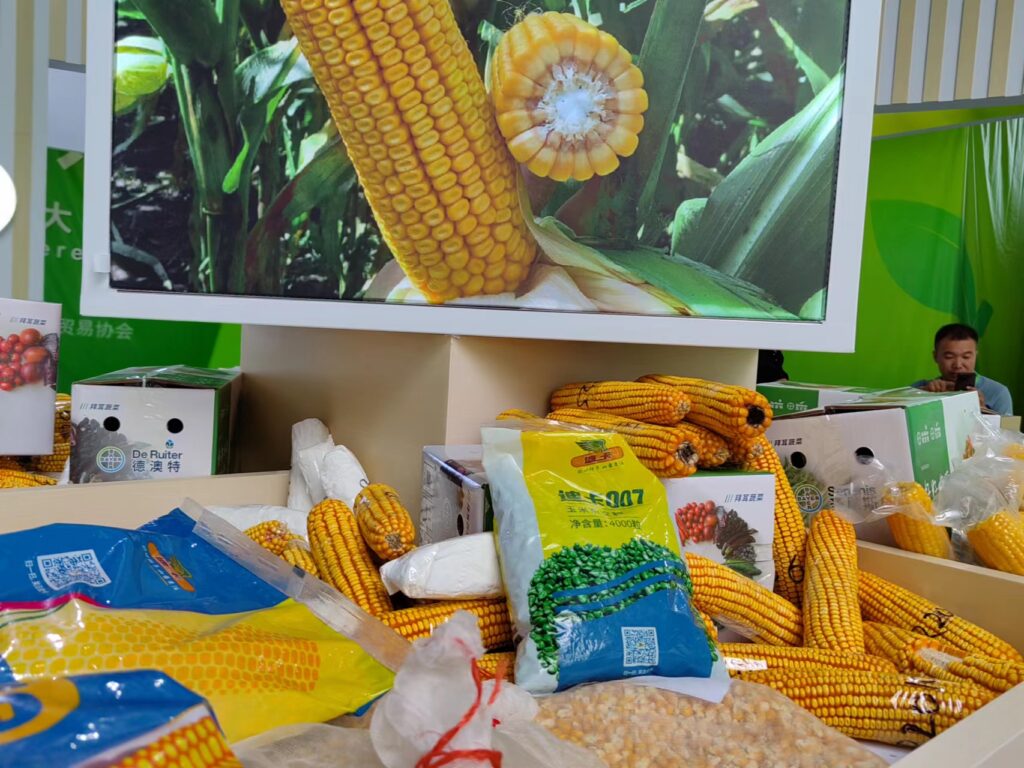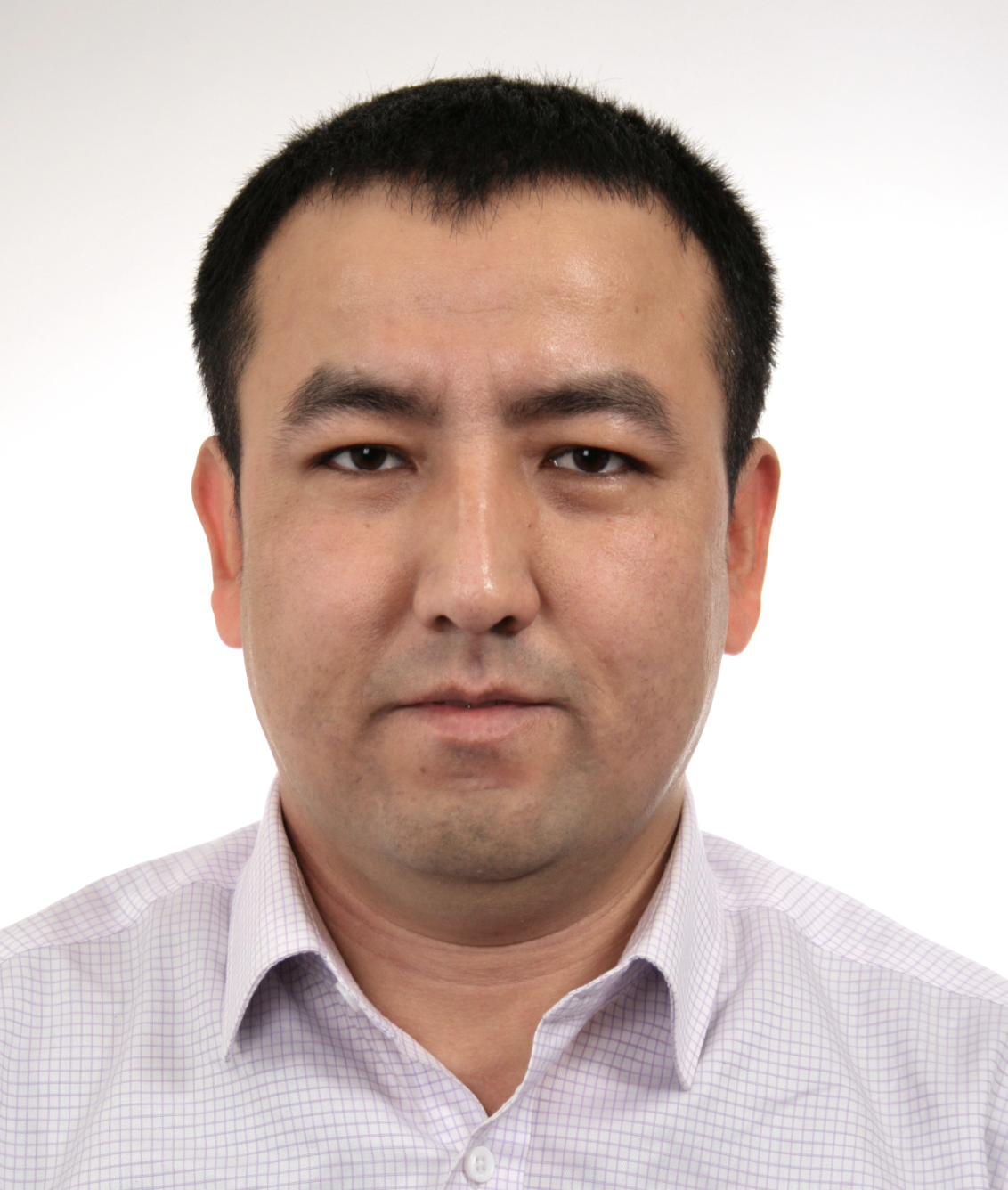On 11 September, the 30th China Beijing Seed Industry Conference was held at Yujiawu International Seed Industry Science and Technology Park in Tongzhou District, Beijing. The conference was themed “Cooperation for Innovation, Revitalization for a Shared Future”. DCZ experts Ahmatjan Rouzi, Eva Sternfeld, and Michaela Boehme attended the conference at the invitation of the China National Seed Trade Association. The event was co-organized by Beijing Tongzhou District Government, Beijing Haidian District Government, Beijing Municipal Bureau of Agriculture and Rural Affairs, and the China National Seed Trade Association.
The conference started with opening remarks delivered by prominent figures, including Beijing Party Secretary Li YIN, Chinese Minister of Agriculture Renjian TANG, Beijing Mayor Yong LIU, and Beijing Municipality Vice Party Secretary Wei LIU. They all emphasized the crucial role of the seed sector in ensuring China’s food security and called for increased innovation and international cooperation in this field.
The first keynote speaker, Vice Mayor of Beijing, Peng GAO, provided an overview of the progress in the seed industry within Beijing. Following this, Carlos Goulart, Deputy Minister of Animal and Plant Health at the Brazilian Ministry of Agriculture and Livestock discussed the current status of various biological and genetic advancement technologies, their applications, as well as their regulations in the Brazilian context. He noted that these biotechnologies have seen high adoption rates, particularly in cotton, soybean, and corn. Mr. Goulart stressed the need for a balance between regulation and innovation to ensure that regulations do not hinder progress in these critical technologies.
After that, the conference featured multiple signing ceremonies for cooperation agreements and MoUs among various Chinese seed companies, regional governments, academic institutions, and financial organizations, all aimed at advancing seed technology commercialization and intellectual property protection.
Chinese scientists highlight the role of new breeding technologies and AI to tackle food security challenges
During the academician session, senior scientists from Chinese academia delved into specific topics in seed technology. Academician Jiamen WAN of the Chinese Academy of Engineering discussed China’s “G2P International Big Science Program” and its role in addressing food security challenges through innovation and international cooperation. Academician Jiankang ZHU of the U.S. National Academy of Sciences explored developments in gene editing in breeding, seed 4.0, and efficiency improvements in soybean and bio-fortified tomato production. Academician Chunjiang ZHAO from the Chinese Academy of Engineering talked about the application of artificial intelligence technology in breeding, highlighting how AI tools accelerate genetic mapping. Academician Shaojun LIU from the Chinese Academy of Engineering discussed advances in breeding and marketing of improved fish species. Academician Shuisheng HOU from the Chinese Academy of Engineering discussed the breakthroughs in feed conversion efficiency, a crucial aspect of enhancing the competitiveness of livestock and poultry species in China.
In the afternoon, the conference proceeded with expert presentations from international organizations and enterprises. Manish Patel from the Asia Pacific Seed Alliance (APSA) discussed food security through seed trade in the APAC region. In his presentation, he noted that APSA has been promoting regional cooperation on seeds and genetic resources among APAC countries and initiated phytosanitary expert consultations with the Consortium of International Agricultural Research Centers (CGIAR) and other organizations.
China's revised Seed Law enhances plant breeders' rights
Chinese seed companies call for more coordination between research and industry
Mr. Weiping SONG, President of Beijing DaBeiNong Technology Group, discussed the importance of world-class seed enterprises in the new era, shedding light on the cooperation between DaBeiNong and SinoChem and Syngenta Group. Mr. Weibo SONG, General Manager of China Seeds Group and Syngenta Group, emphasized the need for collaboration between industry and science to promote innovation and offer dynamic solutions to food security issues in China. Haozhong YUAN, Deputy Party Secretary and General Manager of Beijing Capital Agri-Business & Food Group, showcased how innovations contribute to the high-quality development of the seed and breeding sector, using two types of Beijing duck breeds as an example. Ashish Bhan, Marketing Head of Asia-Pacific Seeds and Traits at BASF, stated that the corporation invested 7.5 billion EUR in research and development to provide holistic and sustainable agriculture solutions.
During the panel discussion, Yong XU from the Beijing Academy of Agriculture and Forestry Sciences elaborated on new melon varieties produced using enhanced seed technology. Mr. Goulart explained Brazil’s determination to achieve self-sufficiency in core food grains like wheat by developing drought-resistant wheat varieties, resulting in increased production. He also touched on the differing innovation ecosystems of public and private institutions in Brazil, where private companies prioritize profitable crops, while government institutions focus on minor crops that may not yield immediate profits. Mr. Patel from APSA shared insights into the organization’s establishment in Thailand, with a focus on vegetable seeds, and its efforts to promote GMO technology acceptance in the region through scientific communication and marketing. Mr. Weibo SONG, General Manager of China Seed Group and Syngenta, underscored the importance of commercial applications and brand building in seed innovation.
The discussions at the event primarily centered around the positive contributions of biotechnology and advanced breeding methods to agriculture and food security. However, genetic biodiversity, animal welfare, and the lack of smallholder farmer’s participation and access to seed and breeding technologies were amongst the controversial aspects of enhanced breeding technologies conspicuously absent from the discussions.
The DCZ experts also visited the exhibition hall, where various companies and regions in China showcased their seed and breeding solutions.




